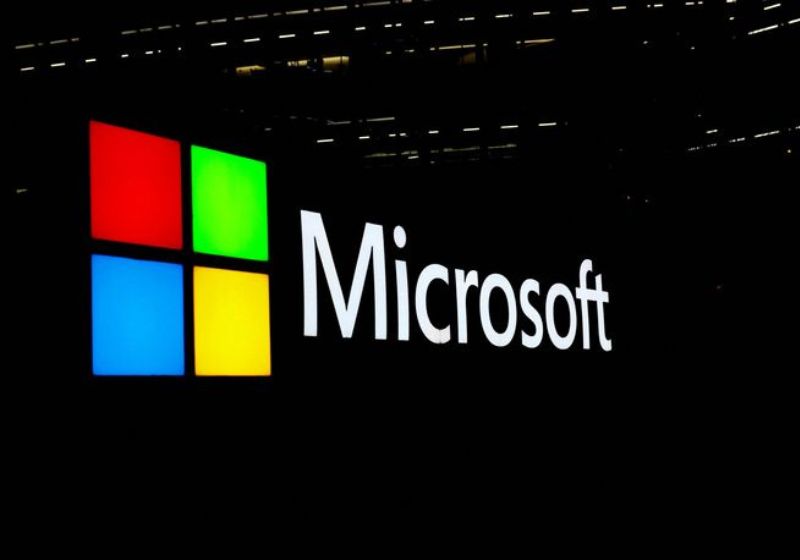MS Teams vs Slack
MS Teams vs Slack: Which Tool Is Better for Your Business?
 Updated 23 Apr 2025
Updated 23 Apr 2025

In today’s fast-paced hybrid work environment, collaboration platforms are the backbone of effective communication. Two of the most dominant players in this space are Microsoft Teams (MS Teams) and Slack. As organisations strive to stay agile, secure, and collaborative, understanding which tool—Slack vs Teams—suits their business needs is essential.
According to a report, MS Teams boasts over 320 million monthly active users, a number that has surged due to Microsoft 365 integration. On the other hand, Slack has reported over 32 million daily active users, highlighting its popularity among startups, developers, and tech teams who value sleek UX and integrations.
Choosing between MS Teams vs Slack isn’t just about features—it’s about how well each platform fits your team’s workflows, tools, and long-term goals. This blog provides a comprehensive Slack vs Teams comparison—covering usability, integrations, pricing, security, and more—to help you make an informed decision.
What is Microsoft Teams?
Microsoft Teams is a collaboration platform developed by Microsoft and is part of the Microsoft 365 suite. It combines chat, video meetings, file storage, and app integrations into a single workspace.
- It’s deeply integrated with Office 365 apps like Word, Excel, and Outlook, making it ideal for corporate users.
- Teams allow users to create channels for different projects or departments, enabling organized communication.
- With built-in video conferencing, Teams supports up to 1000 participants in a single meeting.
- It also includes enterprise-grade security features, backed by Microsoft’s global cloud infrastructure.
What is Slack?
Slack is a cloud-based messaging tool designed to streamline communication and improve team collaboration. It’s particularly favoured by tech companies and startups.
- Slack uses a channel-based approach, where conversations are organized into topic-specific channels.
- It offers over 2600 app integrations, including Google Drive, GitHub, Trello, and Zoom.
- Slack’s user interface is intuitive and modern, promoting quick adoption across teams.
- Its customization capabilities allow teams to create a communication flow that suits their specific needs.
Unlock Seamless Collaboration
Let Q3 Technologies help you choose, implement, and optimize the perfect tool—Slack, MS Teams, or both—for your business needs.
Slack vs Teams Comparison: A Feature-by-Feature Breakdown
Let’s break down the difference between Slack and Teams to evaluate them across core categories:
1. User Interface and Usability
- Slack has a cleaner, more intuitive design tailored to tech-savvy users and startups.
- Teams, while powerful, has a steeper learning curve due to its feature-rich layout.
- Slack’s interface emphasizes minimalism, while Teams mirrors the Microsoft ecosystem style.
- If your team is already using Microsoft 365, Teams will feel more familiar and efficient.
2. Integration Capabilities
- Slack offers 2600+ integrations, including with Atlassian, Salesforce, and productivity tools.
- Teams supports fewer third-party integrations but excels with native Office 365 apps.
- Slack is ideal for DevOps and agile teams that use multiple SaaS tools.
- Teams is the go-to for enterprise IT environments heavily reliant on Microsoft tools.
3. Video Conferencing and Calling
- MS Teams provides robust video conferencing features, rivalling Zoom in functionality.
- Teams offers screen sharing, whiteboarding, and recording features natively.
- Slack uses third-party tools (Zoom, Google Meet) for advanced video conferencing.
- For large meetings or webinars, Teams is a better-equipped tool.
4. Pricing and Cost Analysis
Here’s a clear comparison of the cost of Slack vs Teams:
| Plan | Slack (Monthly) | MS Teams (Monthly) |
|---|---|---|
| Free | Yes (limited features) | Yes (included in Microsoft 365 Basic) |
| Standard | $7.25/user | $6.00/user (Microsoft 365 Business Basic) |
| Plus / Premium | $12.50/user | $12.50/user (Business Standard) |
| Enterprise | Custom pricing | Custom pricing |
- Slack’s pricing is more transparent and flexible for startups.
- Teams’ cost advantage is realized if you’re already paying for Microsoft 365.
- Small businesses on a tight budget may find Slack’s free tier more appealing.
- Enterprises get more value with Teams due to broader Microsoft integrations.
5. Security and Compliance
- Teams offers enterprise-level compliance with support for GDPR, HIPAA, and ISO/IEC 27001.
- Slack also offers strong encryption and compliance features in its enterprise plan.
- Microsoft’s global data centres and security frameworks make Teams more enterprise-friendly.
- Slack does well with encryption but falls short of Teams’ compliance depth in highly regulated sectors.
6. Customization and Workflow Automation
- Slack supports workflow automation using Slackbot, custom triggers, and APIs.
- Teams uses Power Automate for advanced workflows, especially in Microsoft-heavy environments.
- Developers find Slack more flexible for building integrations and bots.
- Teams offers no-code automation for non-technical users via Microsoft Power Platform.
7. Market Share and Popularity
Slack vs Teams market share highlights the shift in enterprise preferences:
- MS Teams dominates with approximately 37% of the market, according to Statista.
- Slack’s market share sits around 13%, appealing primarily to tech startups and mid-sized businesses.
- Teams has become the default collaboration platform in sectors like education, government, and healthcare.
- Slack, however, remains a cult favourite in the developer and startup ecosystem.
Let Our Clients Speak for Us
Read honest feedback and success stories that showcase our commitment to excellence.
Teamwork vs Slack: What’s the Real Deal?
Often, companies compare Teamwork vs Slack, though they serve slightly different use cases:
- Slack is a communication-first tool with light project management capabilities.
- Teamwork is a project management platform with limited chat functionality.
- If your goal is to boost team conversations, Slack wins.
- For task tracking and team productivity management, Teamwork might be more suitable.
Teams Alternative: Is Slack the Right Fit?
Looking for a Teams alternative? Here’s why Slack is a solid contender:
- It’s perfect for teams needing quick onboarding and seamless third-party integrations.
- Developers appreciate Slack’s APIS and custom workflows.
- Remote-first companies enjoy the flexibility and responsiveness that Slack provides.
- However, if your team is deeply embedded in Microsoft’s ecosystem, switching may reduce productivity.
Final Verdict: MS Teams vs Slack – Which Is Better for Your Business?
Choosing between Slack vs Teams depends on your organisation’s size, structure, and existing tool stack:
- For enterprises with Microsoft 365 subscriptions, MS Teams is the natural fit.
- For startups and dev teams with Saas-heavy workflows, Slack wins with flexibility.
- For hybrid teams that prioritise meetings and document collaboration, Teams shines.
- For those valuing interface simplicity and integration breadth, Slack takes the lead.
Make the Right Choice for Your Team
Not sure which platform fits your workflow best? Q3 Technologies offers tailored guidance and support every step of the way.
Why Choose Q3 Technologies for Collaboration Tool Integration?
At Q3 Technologies, we help you make the most of your digital collaboration tools—be it MS Teams, Slack, or any other platform. Here’s why clients trust us:
- Tailored Consultation: We evaluate your workflows and suggest the right platform—Slack, Teams, or hybrid.
- Seamless Implementation: From migration to custom integrations, we ensure a smooth transition.
- Security First: We implement best-in-class security practices aligned with industry standards.
- Ongoing Support: Our post-deployment training and support ensure maximum ROI from your collaboration tool.
Whether you’re scaling fast or modernising your infrastructure, Q3 Technologies empowers your teams to collaborate smarter, faster, and better.
Conclusion
In the ongoing debate of MS Teams vs Slack, there’s no one-size-fits-all answer. Both platforms offer powerful features tailored to different business needs. MS Teams excels in enterprise environments where Microsoft 365 integration, robust security, and large-scale collaboration are essential. On the other hand, Slack is the preferred choice for agile teams, developers, and startups that need flexibility, speed, and extensive third-party integrations.
Ultimately, your decision should align with your business size, workflow complexity, and existing software stack. Whichever tool you choose, ensuring the right implementation and support is key to maximising productivity, and that’s where Q3 Technologies steps in to help.
FAQs
Which should I use, Slack or Microsoft Teams?
The choice depends on your business needs. Use Microsoft Teams if your organization already uses Microsoft 365 and needs built-in video conferencing and enterprise-level security. Choose Slack if your team prefers a cleaner interface, faster onboarding, and broad third-party app integrations.
How do Slack’s Microsoft integrations compare to Teams?
Slack integrates with Microsoft apps like Outlook, OneDrive, and Teams through third-party connectors, but the integration isn’t as seamless. MS Teams, being a native Microsoft product, offers deep, real-time collaboration across Word, Excel, Outlook, and SharePoint, making it a better choice for Microsoft-centric businesses.
Is Slack better than Microsoft 365?
Slack and Microsoft 365 serve different purposes. Slack is a communication tool, while Microsoft 365 is a comprehensive productivity suite that includes Teams, Office apps, cloud storage, and more. If you need just messaging, Slack works well; for full collaboration and productivity, Microsoft 365 offers more.
Is Slack cheaper than Microsoft Teams?
Slack’s free version is feature-limited but good for small teams. Paid plans start at $7.25/user/month. MS Teams is included with Microsoft 365, which starts at $6.00/user/month, offering more value if you’re already using Office tools. So, Slack can be more expensive depending on your existing software stack.
Should a business choose Teams or Slack?
Businesses should choose MS Teams if they prioritize Microsoft 365 integration, enterprise security, and robust video conferencing. Slack is ideal for startups and tech teams that value flexibility, fast integrations, and a modern UI. The best choice depends on your existing tools and workflow needs.
Is Slack a free version of Microsoft Teams?
No, Slack is a separate platform developed by Salesforce, not a free version of Microsoft Teams. Both offer free tiers with limitations, but their ecosystems, features, and integrations are different. MS Teams is tied closely to the Microsoft 365 ecosystem, while Slack is more tool-agnostic.
Table of content
- What is Microsoft Teams?
- What is Slack?
- Slack vs Teams Comparison: A Feature-by-Feature Breakdown
- Teamwork vs Slack: What’s the Real Deal?
- Teams Alternative: Is Slack the Right Fit?
- Final Verdict: MS Teams vs Slack – Which Is Better for Your Business?
- Why Choose Q3 Technologies for Collaboration Tool Integration?
- FAQs



